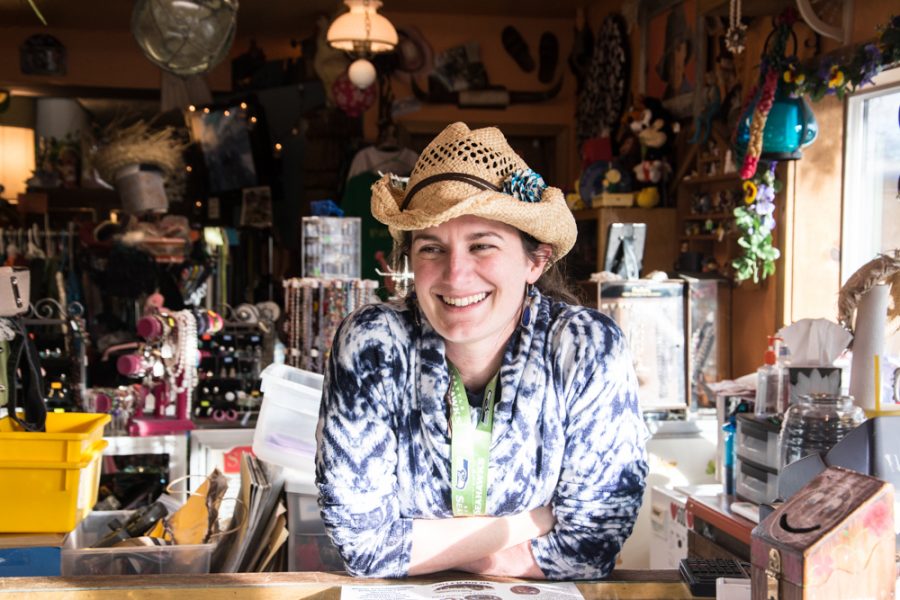Bicycles are a complex business. On the one hand, they provide good exercise, fun, and speedy travel with zero emissions. On the other hand, they are expensive, difficult to store, harder to secure, and often sit idle for weeks at a time. Despite awareness of the benefits of cycling, lots of Whitties: myself included: choose to just walk everywhere, and avoid the hassle of owning a bike.
All that may change soon. Sara Kleinkopf and Andrew Patel are spearheading a pilot program that will provide students, faculty, and staff with all the benefits of cycling while subverting all the drawbacks. The central idea behind the Bike Share is that Penrose Library will rent out bicycles like books: anybody who needs a bike to cross town for an afternoon will check one out, use it for whatever they need, and return it within 24 hours.
I sat down with Kleinkopf to hear more about her vision for the pilot program. She described an ambitious but plausible scenario that may someday greatly broaden the range of places to which the average student can freely travel.
“If anyone wants to rent a bike for the day, they’d come to the library, go to the circulation desk, and be able to check out a bike, helmet, lights: whatever they need,” Kleinkopf said. “You probably wouldn’t go on a long, OP sort of bike ride. Ideally, the bikes would be for transportation: if you want to go to Safeway, or you have a job in town, the Bike Share is a great way to do that.”
The pilot program is slated for an extremely tentative April launch, though some logistical issues remain to be worked out before then. Bike interns Kleinkopf and Patel are finalizing plans along with members of the Campus Climate Challenge’s Bike Share committee. In order to get Bike Share off the ground, the committee is working with a diverse cast of campus characters, ranging from the Outdoor Program and the physical plant to the library and Environmental Studies faculty.
“The library is in charge of checking the bikes out, and we’re working with the physical plant and landscaping committee to determine locations for the bikes and bike racks,” Kleinkopf said. “We’re working with security to make sure these bikes will be safe at night, and we’re getting bikes from the OP sometime in the next two weeks. So many different institutions that I didn’t even know were connected are working together to get this pilot program up and running.”
The biggest problem currently facing the Bike Share’s CCC coordinators regards what to do when the bikes are not returned on time. As is the case with books, equipment, or anything else that can be rented, not every customer will treat the merchandise with proper respect: bikes and bike paraphernalia may be damaged or returned late or not at all. Kleinkopf, Patel, and the committee are determining how to recover the bikes from deadbeats, how to assess fees in these cases, and how these fees can be added to the Penrose Library’s registers.
The idea for the Bike Share was conceived last year by two interns, based on a system already used by many liberal arts colleges. Kleinkopf, who took up the mantle of the pilot program with Patel after being inspired at a conference in Washington, DC, is confident that the Bike Share can both succeed and expand.
“We’re hoping to make a difference among faculty. A lot of the ES faculty have said that they have an hour for lunch and they’d like to have the option to hop on a bike, go downtown, and get back before their class,” Kleinkopf said. “The other difference we’re hoping to make is in the freshman mentality. We’ll advertise on the freshman Facebook page and tell them they don’t necessarily need to bring their own bike to campus.”
Kleinkopf and Patel plan to open the pilot program with a fleet of 10 bikes, but dream of expanding it to the point where it would be possible to check out a bike for an entire semester. So if you, gentle reader, are tired of the walk into Walla Walla but afraid that a bike you purchased would gather dust, fear not: a solution is on its way.

